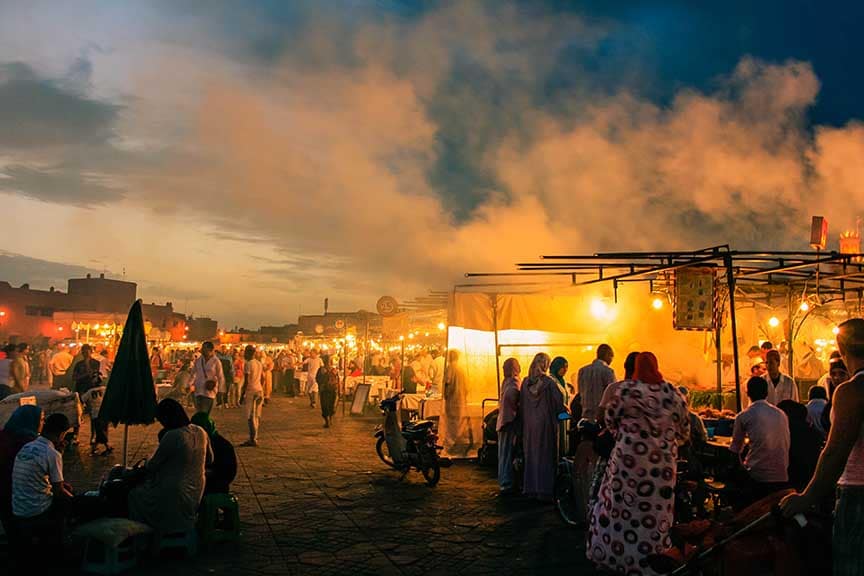What is the Poorest Country in the World?
by CAPP-USA

What is the poorest country in the world? What is the richest?
The Poorest Countries
When you think about the poorest country in the world, what comes to mind? Likely, it is economic poverty, picturing a place in Africa.
And, by material and economic standards the ten poorest countries are in Africa. Conversely, the ten richest countries are mostly in Europe.
But the Church insists our understanding of “poorest” and “richest” avoids a one-dimensional focus.
Poverty is not just material. “[I]t is well known that there are many other forms of poverty, especially in modern society – not only economic but cultural and spiritual poverty as well.” (Pope St. John Paul II, 57)
Rich vs. Poor
Pope St. John Paul II taught that “It is not possible to understand man on the basis of economics alone”. (Centesimus Annus, 24) And when we expand our understanding of poverty to include these other forms of poverty, the list of poorest and richest countries often changes — substantially.
Pope Francis has called attention to three forms of destitution: material, moral, and spiritual.
Material poverty “affects those living in conditions opposed to human dignity: those who lack basic rights and needs such as food, water, hygiene, work and the opportunity to develop and grow culturally”. (Pope Francis, 2)
Moral poverty is much worse because it entails a situation “without faith, without support, without hope:” (Message for Lent, 2014, 2)
And we experience spiritual poverty “when we turn away from God and reject his love. If we think we don’t need God…we are headed for a fall. God alone can truly save and free us.” (Pope Francis, 2)
So, Who Are the Poorest?
MATERIALLY
Based on Pope Francis’ 2015 address to the U.N, (Pope Francis) where the Holy Father identified seven categories to determine a nation’s poverty or wealth, Fordham University tracks the “(Pope Francis Global Poverty Index)“: water, food, housing, and employment, making up the material well-being of a society – and education, civil rights, and religious freedom comprising society’s spiritual well-being.
Materially, the 2023 report identified 9% of the world’s population lacks access to drinking water, 9% are without minimum nutrition, 15% live in substandard housing, 22% are without dignified employment, 13% are illiterate, 54% of women and girls are deprived of civil rights and 57% live with restricted religious freedom.
And, no surprise, the countries lowest in material well-being align with other secular scores of economic poverty – with African countries making up most of the bottom 10.
SPIRITUALLY
“Today we too find ourselves in the midst of a dramatic conflict between the ‘culture of death’ and the ‘culture of life’.” (Pope St. John Paul II, 50)
However, when spiritual well-being is considered China, India, Egypt, and Iran appear at the bottom. In fact, while China owning one of the highest material welfare indices, it is third from the bottom, just ahead of only Madagascar, Chad, and Niger, due to it owning one of the lowest spiritual freedom indices by far.
Also, many materially rich countries promote practices supporting what Saint Pope John Paul II called “a culture of death” (Evangelium Vitae) (abortion, euthanasia, assisted suicide, transgenderism, religion as ‘hate speech’, etc.). — “In this way a kind of ‘conspiracy against life’ is unleashed” (Pope St. John Paul II, 12) “creating and consolidating actual ‘structures of sin’ which go against life.” (Pope St. John Paul II, 24) with “powerful resources available to the forces promoting the ‘culture of death’” (Pope St. John Paul II, 100)
So, Which is Really the Richest Country?
While Catholic social teaching calls for all forms of poverty to be confronted “there is only one real kind of poverty: not living as children of God and brothers and sisters of Christ.” (Pope Francis, 1)
Populations need food and water and while “[m]an needs to be liberated from material oppressions…more profoundly he must be saved from the evils that afflict the spirit.” (Pope Benedict XVI)
“Without God man neither knows which way to go nor even understands who he is”! (Pope Benedict XVI, 78)
Those who depend on God are the richest!
Rags to Riches
Development economics and countless national and international relief efforts are devoted to alleviating material prosperity. And this takes the courage “to face the risk and the change involved in every authentic attempt to come to the aid of another.” (Pope St. John Paul II, 58)
But to go from poor to rich spiritually requires an “Openness to God” which “makes us open towards our brothers and sisters and towards an understanding of life as a joyful task to be accomplished in a spirit of solidarity.” (Pope Benedict XVI, 78)
And it takes structural changes: “Our duty is to continue to insist…that the human person and human dignity are not simply catchwords, but pillars for creating shared rules and structures”. (Pope Francis, 2)





